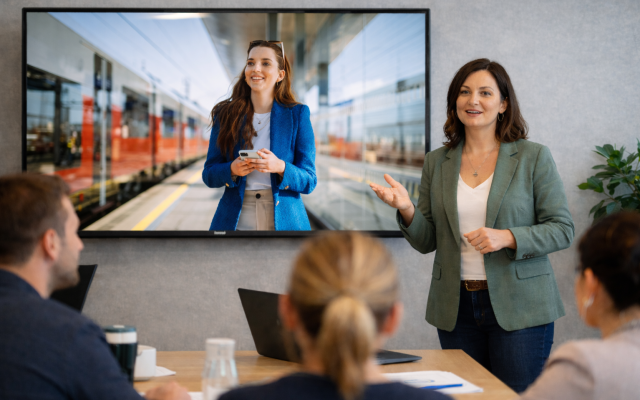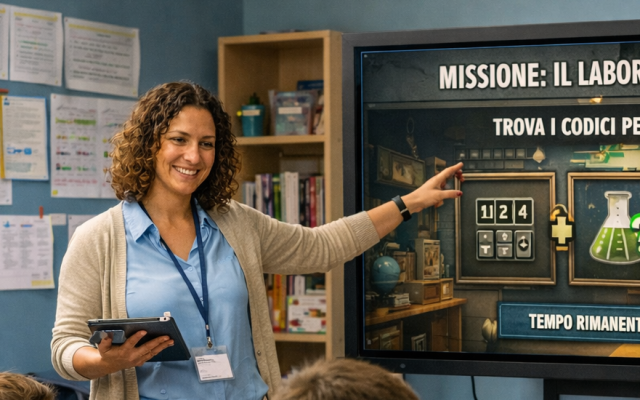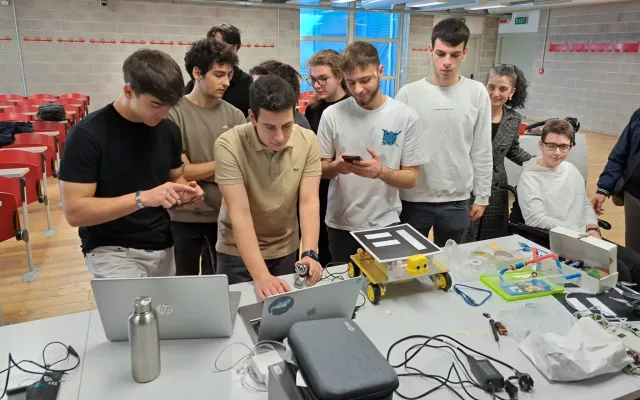Since 2000, December 18 is dedicated to the International Migrants’ Day, an event established by the United Nations to mark the 1990 approval of the International Convention on the Protection of the Rights of All Migrant Workers and Members of Their Families.
On this day, we would like to share with you an open letter from Zakaria Mohamed Ali, a freelance journalist and documentary producer who has been living in Italy, as a political refugee, since 2008.
We met Zak at the Rome Centro Enea. "I arrived in Italy on a boat with my degree certificates concealed. They were taped to my chest. I had no idea how to start living again, how to contact my relatives or how to look for a job. The Internet Café really helped me," he told us at the time. Thanks to his exceptional communications skills, Zak first helped out at the Fondazione Mondo Digitale as a coach and then became a Computer teacher at the Pietralata Reception Centre. Today, he writes to all of us. Here is his open letter.
My name is Zakaria Mohamed Ali. I am a freelance journalist and documentary producer. I have lived in Italy as a political refugee since 2008 and work as a cultural mediator. I had to cross five countries to arrive in Italy. The journey lasted 8 months.
It was not easy, either for me or for the hundreds of thousands of other people that arrived in Italy and Europe just like me. It was not even a choice. Need is what drives one to face the sea, when there is nothing left behind and all you can do is move forward, at any cost.
Crossing the Mediterranean was not easy. I was scared, but I knew I had to risk my life. I had reached a point of no return. I could not go back. I could not stay in Libya. At the time, Ghedaffi was still in power and the situation was especially hard for refugees. And now that there is an unstable government and an ongoing civil war, can you imagine what the situation is like?
I’m not here to hold a lesson on geopolitics, but I must say one thing to everyone, including those fighting for human rights and the rights of migrants and refugees.
It’s painful. No one can judge or understand what it means to choose between a certain death in your country and a probable death at sea. We do not know the story of the mother who lost her child. Many people in search of a better life remain trapped in Libya. Many young women are repeatedly abused, locked up, beaten and humiliated in front of others, men and women.
We do not know the names of all the people who died in the Mediterranean, just like we don’t know the names of the people who lose their life and soul in the countries they have to travel through. We do not know what they dreamed or the last time they spoke to their families. We do not know their projects upon arrival in Italy. We know nothing about them. Every story is complex and at the same time the same in human history.
Many do not have the money to pay for the whole trip and are locked up in countries on the way, where they suffer abuse and violence.
My personal and work experience has brought me into contact with many of these stories. For many years, now, I have followed the sufferance of “travellers without a choice.”
We know nothing about that mother who lost her six-month old child … as we know nothing of many other mothers, children, men and elders.
Knowing the stories of other Libyans, that woman could have lost her husband on the journey … or she may never have had a husband and not even chosen to become pregnant. In any case, if she was on that boat, it was only out of need to escape the void behind her.
What I mean is that no one can judge, because none of us really knows the stories of these people.
Public opinion must be helped to understand this and ask themselves “why do so many men, women, children and elders decided to take a boat to come to Italy and put their lives at risk?”
Let’s ask ourselves and our political representatives, because, as of 2020, no embassy has opened its doors to people in need, to allow them to apply for asylum in a safe and risk-free manner.
Why, in 2020, has Europe still not opened up a regular channel through local organisations or via an on-line platform where European-level asylum requests can be received?
Why, in 2020, do so many people prefer to risk drowning than remaining in a dangerous position on land?
Journalists, writers, opinion makers have a crucial duty, in this fight between humanity and inhumanity. They must create a different story, relay the voice of those who have been offended and judged for having risked the lives of their children.
We have to allow young men and women to ask questions and learn the truth, free from propaganda, free from prejudice. As political refugees we can contribute to a discussion founded on the facts of the protagonists.
How many shipwrecks have we witnessed in the Mediterranean? And what has changed?
I’d like to conclude with a quotation by Tiziano Terzani: chisel them into your heart, read them at night, to truly understand that life is much more than what we see on television.
“The world has changed. We have to change, too. Above all, we must not pretend that everything is as before, that we can continue to live a cowardly normal life. Our lives cannot be considered normal given all that is happening in the world. We should be ashamed of this normality. So, I say: let’s stop, reflect, understand. Let’s all do something … no one else can do this for us.”
Thank you for your attention,
Zakaria Mohamed Ali



